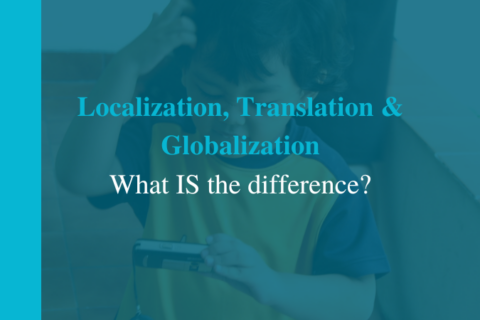The Impact of Local Teams On Translation Memory
When an organization is disseminating Learning & Development (L&D) content for consumption by a global audience, tremendous time and resources are dedicated to the development of the content and desired outcomes. Many organizations finalize and perhaps translate the content for distribution to their global audiences. However, this process is flawed if local teams, in the targeted geographic region, are not involved in this process. In this article, we’ll explore the impact of local teams on translation memory and global translation initiatives.
Local Team Feedback
When content is disseminated to a global audience, often the local team may provide additional phrases, idioms, or segments of text to ensure the content is consumed in a way that makes sense for their local office. A common problem many companies experience is not getting feedback from local teams regarding translated content. The local teams often review the translations, make the changes deemed necessary, and then distribute to the teams as needed. But, when this local initiative occurs, there is an important, and often costly, piece of the puzzle that is missing from future efforts. This local team feedback is never incorporated into a consistent process and therefore can lead to unnecessary waste of time and resources.
Translation Memory
Translation Memory is a process wherein a database is created that stores phrases that have been translated previously. Translation memories support the localization of content and improve quality, speed, and efficiency of translation of content for a global audience.
When content is distributed, and changes are made by the local team, a potential snowball effect occurs. The translation memory (TM) is not able to be updated. By not updating the TM, the teams will continue to translate in the style they thought was initially accepted. Ultimately this leads to longer (and begrudged) review times from the local teams. They will continue to make the same type of changes over and over and begin to feel a lack of motivation to review. Naturally, with the longer review cycle, higher costs will be incurred as the full-time employee (FTE) is spending more time reviewing and less doing their intended responsibilities. This process shows the impact of local teams on translation memory and future costs, time, and resources.
How to Improve Feedback From Local Teams
From a translation perspective, failing to incorporate the local team ultimately leads to higher costs and a lack of consistency from document to document. Seeing the snowball effect on these initiatives poses a very big question, namely: Why do so many global teams have trouble getting the local teams to share feedback/changes made to the translations?
The answer to this is not easy and could be a combination of many things ranging from:
- Understanding (or lack thereof) the importance of sharing the feedback
- Language barrier
- Cumbersome sharing structure
- Perceived lack of importance of thoughts/voice
With so many factors coming in to play, perhaps we should be focusing on the solutions to this common problem. The first step in this process, as in most, is education. L&D professionals should start this process by explaining the importance of sharing the feedback and the value it may bring. By offering a simple explanation, it can empower the reviewers by making them feel their voice/opinions matter and are heard.
Get Local Team Feedback Early
Additionally, explaining the importance of feedback and its costs/benefits will give the local team reviewers further purpose when reviewing the translations, resulting in a more thorough review with a faster turn around time. The most important step is getting the reviewers on board prior to the translation. Allow them to help select the team of translators, set-up style guides and glossaries with their writing styles, and the most common phrases/words that they are correcting. Incorporate this into a TM system will reduce time, increase quality, and reduce redundancies. It will also provide the reviewers an easy place to access and save files. This simplified process gives the team one more reason to provide great feedback and drives home the impact of local teams on translation memory.
If you need help translating or localizing content for a global audience, Global eLearning can help! We are focused on the needs of the Learning & Development industry and have helped hundreds of companies disseminate information in a fast, efficient way. Contact us to get started!


